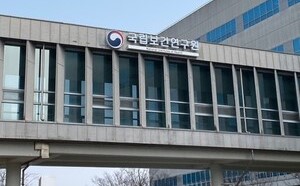
Korean researchers have confirmed for the first time that vitamin D can directly inhibit nonalcoholic fatty liver disease (NAFLD) that occurs with natural aging.
The National Institute of Health (NIH) under the Korea Disease Control and Prevention Agency (KDCA) said Tuesday that the institute has recently published its findings in a specialized journal.
Nonalcoholic fatty liver refers to the deposition of more than 5 percent fat in the liver, and 40.4 percent of Koreans 65 and older suffer from nonalcoholic fatty liver.
The development of fatty liver can lead to liver fibrosis, cirrhosis, and liver cancer, as well as chronic diseases, such as type 2 diabetes, cardiovascular disease, and dementia.
Compared to Westerners, more Koreans show vitamin D deficiency, especially in the aged population. Studies have also linked vitamin D to the development of diabetes and nonalcoholic fatty liver, but the effects and mechanisms of action have yet to be precisely understood.
A team of researchers from NIH's Endocrine and Kidney Diseases Research Division demonstrated for the first time worldwide that vitamin D deficiency due to natural aging sharply decreases the amount of Micos 60, a protein that regulates the structure of the mitochondrial inner membrane, leading to a significant increase in fat accumulation in the liver.
They also demonstrated that supplementing aged mice with sufficient amounts of vitamin D directly increases Micos 60 protein and inhibits fatty liver production.
"This is an important study that directly reveals the preventive effects and regulatory mechanisms of vitamin D in the context of the lack of evidence on the preventive effects of vitamin D on fatty liver," NIH Director Park Hyun-young said. "It is expected that adequate vitamin D intake by older adults can reduce the development of fatty liver due to aging."
The findings were published in the January online edition of Experimental & Molecular Medicine (IF 12.8), one of the world's leading medical journals.

